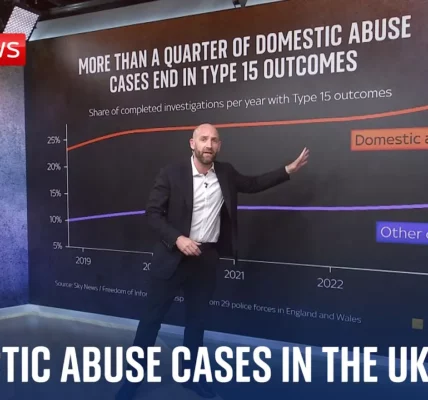Impact of COVID-19 on the NHS: Insights from Patients and Healthcare Workers

This article delves into the recent inquiry examining the profound impact of COVID-19 on the NHS, highlighting personal accounts from patients and healthcare professionals, including Michael Rosen’s harrowing experience in intensive care.
Introduction
The COVID-19 pandemic has left an indelible mark on healthcare systems worldwide, particularly the NHS in the UK. A recent inquiry has sought to analyze the effectiveness of the responses implemented during the pandemic, especially during the initial lockdown period announced by Prime Minister Boris Johnson on March 23, 2020. This article explores the personal narratives presented in the inquiry, including Michael Rosen’s poignant testimony and the experiences of healthcare workers, which collectively underscore the challenges faced by the NHS during this unprecedented crisis.
The Inquiry’s Focus
Understanding the Context
The inquiry’s module three seeks to address several critical questions arising from the pandemic’s handling. Key phrases such as “stay at home, protect the NHS, save lives” encapsulate the government’s messaging during the lockdown. The inquiry aims to evaluate:
- Whether the NHS was adequately protected.
- If lives were saved as a result of these measures.
- The costs associated with protecting the NHS during this crisis.
Personal Testimonies: A Patient’s Perspective
Michael Rosen’s Experience
Michael Rosen, a renowned children’s author and broadcaster, provided a harrowing account of his experience battling COVID-19. His testimony highlighted the gravity of his condition upon admission to intensive care, where he faced the prospect of a life-altering decision:
- He was informed by doctors that he had a 50% chance of waking up after being sedated.
- Rosen’s reflections on his condition reveal the lasting impacts of COVID-19, which he describes as a form of “long COVID.”
This narrative exemplifies the critical care capacity issues faced during the pandemic, as many patients were subjected to similar life-and-death situations.
The Healthcare Workers’ Struggle
First-Hand Accounts from Healthcare Professionals
The inquiry also featured testimonies from healthcare workers, such as a young paramedic named John from Buckinghamshire. His account provides insight into the emotional toll the pandemic took on frontline workers:
- John described responding to back-to-back cardiac arrests, often involving patients under 60 years old.
- His reflections on a specific case—a 34-year-old man—illustrate the difficult decisions paramedics were forced to make due to overwhelming hospital pressures.
These experiences underscore the psychological burden that healthcare professionals carried, grappling with the reality of inadequate resources and capacity during a health crisis.
Critical Care Capacity and Systemic Challenges
Evaluating the NHS’s Response
The inquiry aims to retrospectively analyze the NHS’s response to the COVID-19 pandemic, focusing on the following aspects:
- Assessing the decisions made regarding critical care capacity.
- Understanding the impact of these decisions on patient outcomes.
- Evaluating the support provided to healthcare staff during the peaks of the pandemic.
Such evaluations are crucial for understanding the overall effectiveness of the NHS’s pandemic response and identifying areas for improvement in future health crises.
Conclusion
The ongoing inquiry into the impact of COVID-19 on the NHS sheds light on the profound challenges faced by both patients and healthcare workers during the pandemic. Personal testimonies like those of Michael Rosen and young paramedic John illustrate the human cost of the crisis and the vital importance of safeguarding the NHS. As we reflect on these experiences, it is imperative to prioritize the lessons learned to ensure a more resilient healthcare system in the future. For further reading on the NHS’s response to COVID-19, check our related articles on healthcare resilience and pandemic preparedness.
“`




